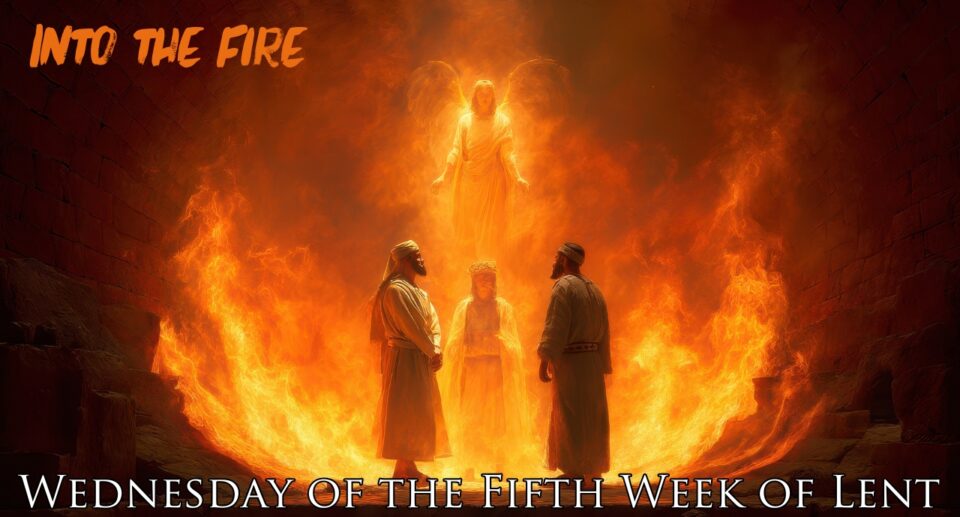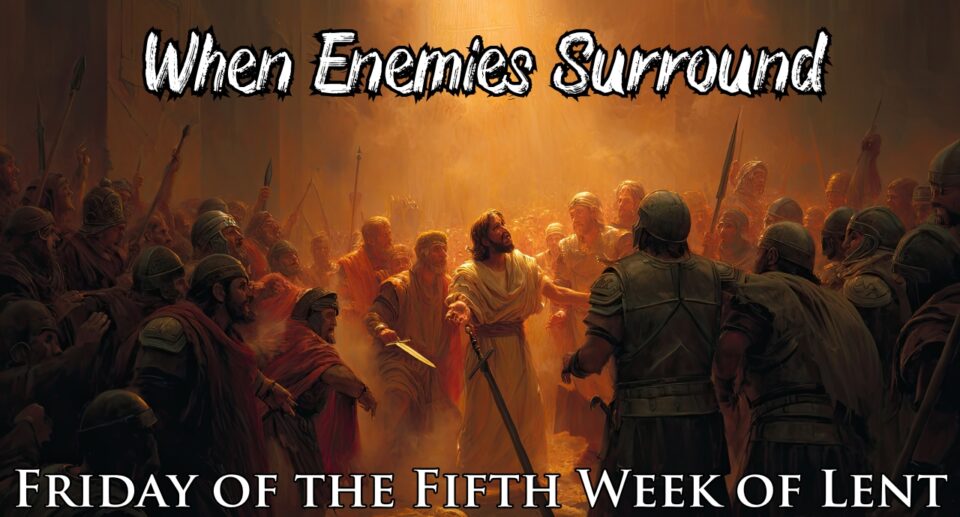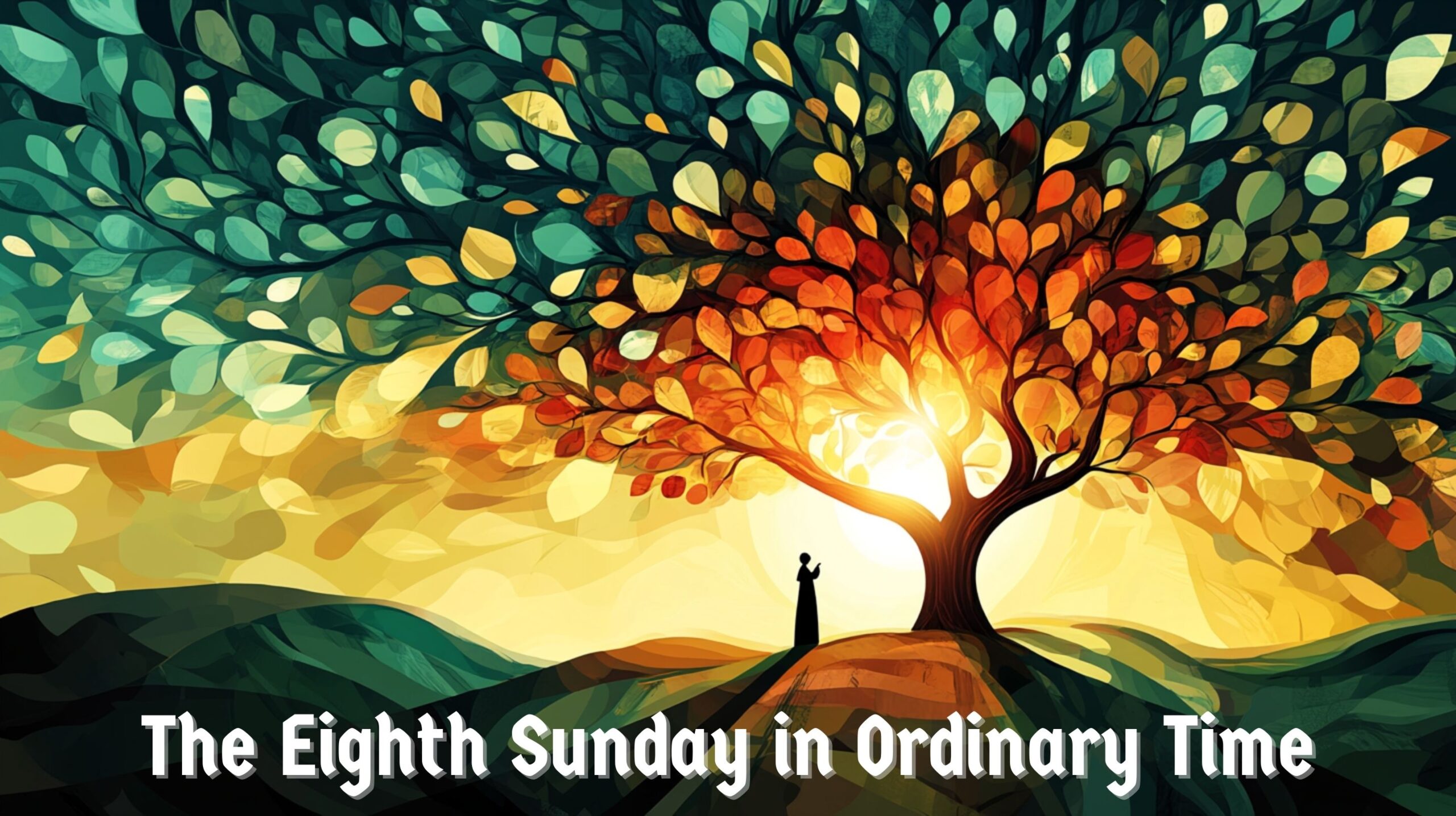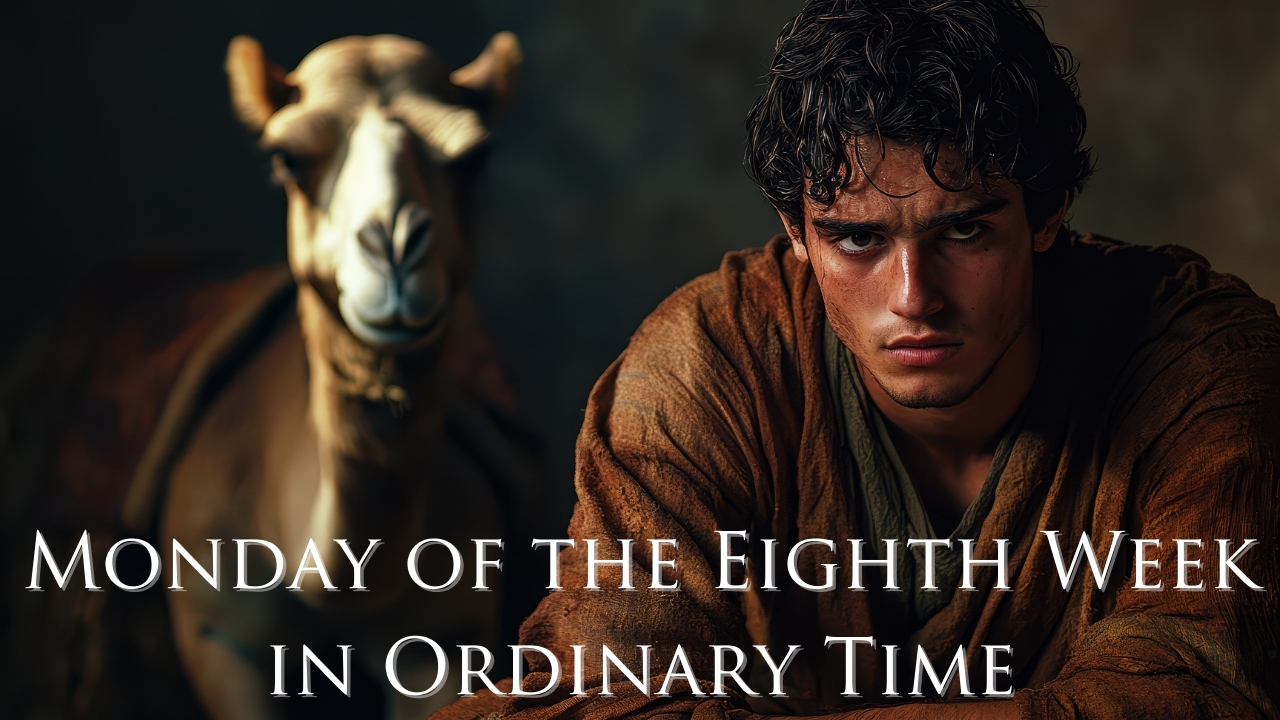Before Abraham Was, I AM: The God of Everlasting Promises | Daily Readings | April 10, 2025
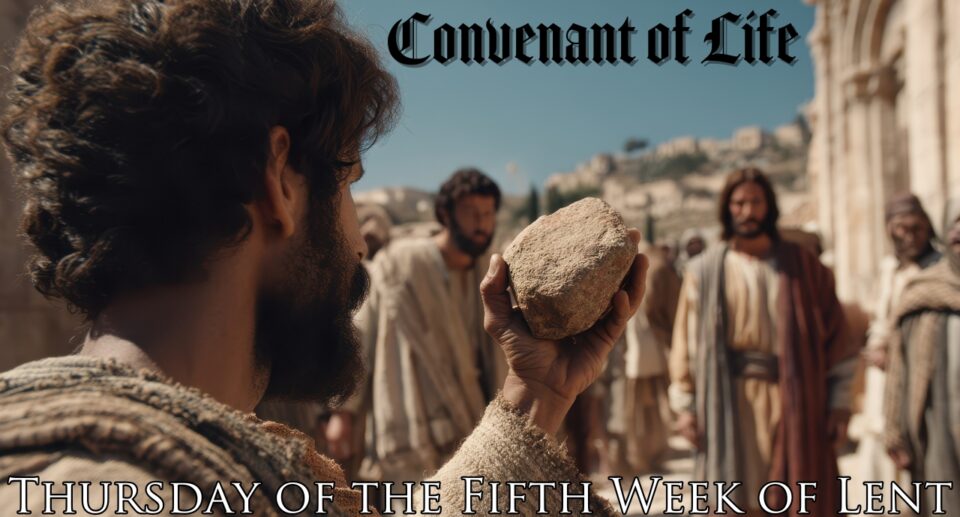
From an old man kneeling in the desert receiving an impossible promise to Jesus declaring his eternal existence in the Temple courtyard—today’s readings reveal the breathtaking scope of God’s covenant faithfulness across thousands of years.
Through this reflection, you’ll discover:
- How God’s promises unfold across generations in ways we could never predict
- Why Jesus’ declaration “Before Abraham was, I AM” changed everything
- The deep connection between the Abrahamic covenant and Holy Week
- How to live as people of covenant in a world of broken promises
Readings covered: Genesis 17:3-9; Psalm 105:4-9; John 8:51-59
Perfect for anyone preparing for Holy Week, struggling with God’s timing, or seeking to understand the grand arc of salvation history that culminates in Christ.
#LentenReflection #FifthWeekOfLent #AbrahamicCovenant #IAM #DivinePromises #HolyWeekPreparation #GodsFaithfulness
Before Abraham Was, I AM: The God Who Makes and Keeps Promises
The desert wind swept across the plain as Abram fell to his knees, face pressed against the earth. The voice that had first called him from Ur decades ago now spoke again, reshaping not just his future but his very identity.
“No longer shall your name be Abram,” the voice declared, “but your name shall be Abraham; for I have made you the father of a multitude of nations.”
Abraham. Father of Many. A new name for a ninety-nine-year-old man with one son born to a slave woman, while his wife’s womb remained as barren as the desert around him. A promise so audacious it seemed to mock reality itself.
Yet Abraham remained prostrate, listening as God unfolded a covenant that would echo through millennia: “I will establish my covenant between me and you, and your offspring after you throughout their generations, for an everlasting covenant, to be God to you and to your offspring after you.”
This moment—a bent old man receiving an impossible promise from an invisible God—stands as one of history’s great hinges, a pivot point on which the story of salvation turns. And in today’s readings, we trace the astonishing arc from this covenant to its ultimate fulfillment in Christ, who declares, “Before Abraham was, I AM.”
Our first reading captures the moment when God transforms Abram into Abraham, promising him descendants as numerous as the stars and land for them to inhabit. What makes this covenant remarkable is its one-sidedness. God doesn’t say, “If you do this, then I will do that.” There are no conditions attached. God simply binds Himself to Abraham with a promise that depends entirely on divine faithfulness rather than human performance.
In our psalm response, we hear Israel singing this covenant back to God: “He remembers his covenant forever, the word that he commanded for a thousand generations, the covenant that he made with Abraham.” This isn’t just historical reminiscence—it’s active remembrance, calling God’s promises into the present moment of need or celebration.
Then, in our Gospel, Jesus makes an assertion that shatters all conventional understanding: “Before Abraham was, I AM.”
His Jewish audience immediately reaches for stones. They understand exactly what Jesus is claiming. “I AM” isn’t just poor grammar—it’s the divine name revealed to Moses at the burning bush. Jesus isn’t merely saying He’s older than Abraham; He’s identifying Himself with the eternal God who made the covenant in the first place.
This progression through our readings reveals something profound: the covenant with Abraham finds its ultimate fulfillment not just in a nation or a land, but in a person—Jesus Christ, the eternal Word who enters time and space as a descendant of Abraham to fulfill all God’s promises.
What does this ancient covenant history mean for us today, especially as we approach Holy Week?
First, it reminds us that we worship a God who makes and keeps promises across generations. In a world of broken contracts and fading commitments, the covenant faithfulness of God stands as a counter-cultural reality. God’s promise to Abraham wasn’t fulfilled in his lifetime—it unfolded across centuries and continues to unfold today.
Second, these readings highlight the extraordinary humility of God. The eternal “I AM” enters time, becomes a descendant of Abraham, and submits to death. The One who made the universe becomes part of the creation, fulfilling from within what could not be accomplished from without.
Third, our readings challenge us to consider our own covenant identity. Through baptism, we have been incorporated into the new and everlasting covenant established in Christ’s blood. Like Abraham, we’ve received a new name and a new identity. We become part of the fulfillment of God’s promise to Abraham to make him the father of many nations.
As we stand just days away from Holy Week, Jesus’ confrontational words in the temple gain particular poignancy. “Before Abraham was, I AM” is not just a theological claim about pre-existence—it’s a revelation that the One who will soon hang on a cross is the same One who spoke creation into being, who called Abraham from Ur, who led Israel through the wilderness.
The Cross represents the ultimate covenant commitment—God’s promise to redeem humanity fulfilled through divine self-sacrifice. As Jesus says earlier in this Gospel passage, “Amen, amen, I say to you, whoever keeps my word will never see death.” Physical death remains, but its finality is overcome. The covenant promise extends beyond the grave.
Abraham received a promise that seemed impossible—descendants as numerous as stars for a childless old man. He believed, and that faith “was reckoned to him as righteousness.” We too face a promise that defies human understanding—that through Christ’s death and resurrection, death itself is defeated. Our faith in this seemingly impossible promise connects us to Abraham across millennia.
The progression of our readings also reveals how God works incrementally through history. The covenant with Abraham begins a story that unfolds through Isaac, Jacob, Joseph, Moses, David, the prophets, and ultimately finds fulfillment in Jesus. God rarely acts with immediate, complete transformation, but rather plants seeds of promise that grow across generations.
Jesus’ declaration “Before Abraham was, I AM” challenges our limited perspective on time. We tend to view history as strictly linear, but God stands outside time, seeing beginning and end simultaneously. From God’s perspective, the promise to Abraham and its fulfillment in Christ exist in an eternal now.
As we prepare for Holy Week, these readings invite us to see the upcoming passion, death, and resurrection of Jesus not as isolated events, but as the culmination of a covenant story that began with Abraham. The same God who called a wandering Aramean to be the father of many nations now reveals Himself fully in Christ.
When we participate in the liturgies of Holy Week, we’re not just commemorating historical events from two thousand years ago. We’re entering into a covenant drama that stretches back to Abraham and forward to the final fulfillment of all God’s promises.
Our first reading shows Abraham responding to God’s covenant with face-down worship. Our psalm calls us to “seek his presence continually.” And Jesus invites us to “keep my word” and thereby overcome death itself. These three movements—worship, seeking, and obedience—form the appropriate response to covenant relationship.
As this Lenten journey approaches its climax, may we, like Abraham, trust God’s promises even when fulfillment seems impossible. May we, like the psalmist, actively remember God’s covenant faithfulness through all generations. And may we, like Jesus’ true disciples, keep his word and thereby participate in his victory over death.
For we worship the God who is not bound by time or limited by impossibility—the eternal I AM who enters our world to fulfill every promise ever made.

